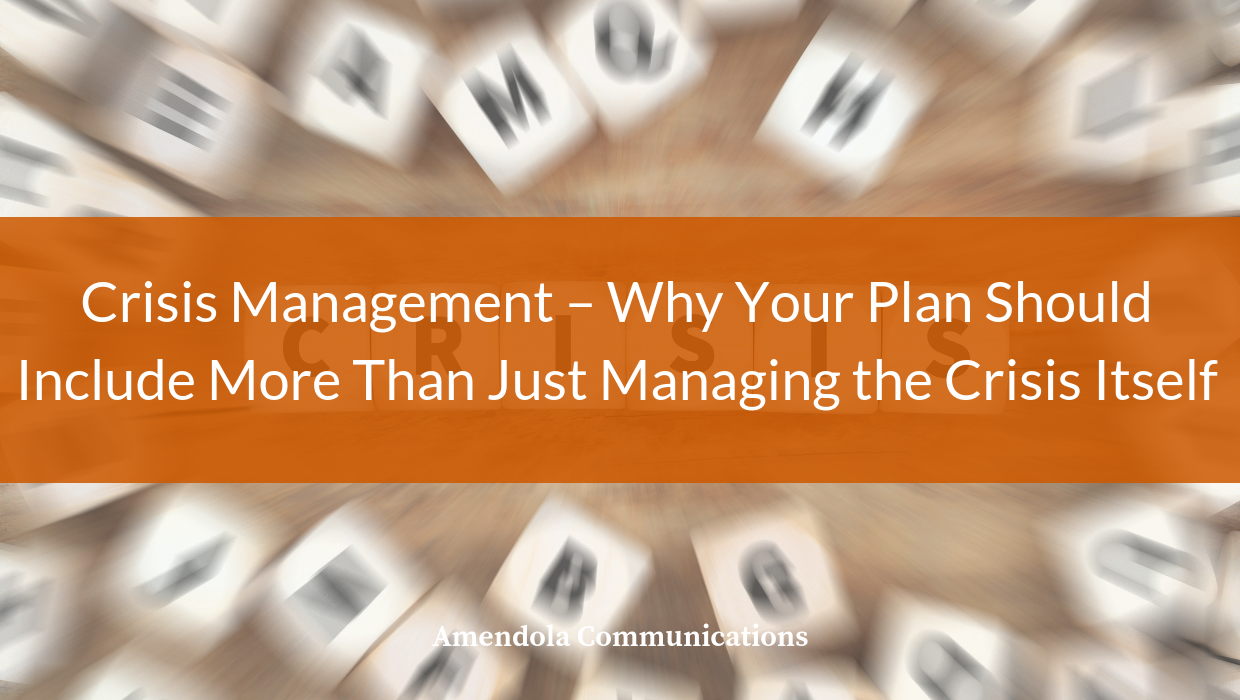Turn on the news today and you realize that crises come in multiple forms. Scandals, data breaches, natural disasters and public health concerns are just the tip of the iceberg.
The importance of having an actionable, tested plan with holding statements is well documented and understood. C-suite, IT, marketing, human resources and other departments all talk about it and recognize the ramifications of not having a plan.
While the need for a plan is not questioned, it is critical to assess where the charter for this plan starts and stops. If it is robust and forward-thinking, it should include an analysis of your current communications status, including evaluating your current brand reputation and acknowledging that your stakeholders’ perception of you now will impact you during moments of crisis.
If your company’s reputation is solid and you have built a brand that is trusted and transparent, customers and stakeholders will typically show you more goodwill during crisis periods. However, if your company is perceived as less than transparent, a crisis will only further deteriorate the brand. It is critical that your brand establish a solid reputation now so that in the long run so that you have more cachet with brand evangelists.
Another consideration of the plan is how far it should extend. After you have put out the immediate fire, should you go back to the status quo of how you were doing things before?
Absolutely not. Crisis management must extend well beyond the crisis itself and transform into a robust reputation management campaign. While having a good reputation to start with helps minimize damage, a crisis will undoubtedly impact your credibility with customers, prospects and stakeholders so you MUST have an initial plan ready for how to rebuild that trust.
Similar to the actual in-moment crisis management work, reputation rebuilding will be different in every scenario. However, you should think about how each type of crisis will impact audiences and plan potential tactics around it. For example, let’s take the case of a product recall impacting medicine that is administered to children. A few potential ways to rebuild trust include:
- A webpage that stays up for at least 6 months with all of the information about what was done to correct the issue, how customers should dispose of the product and all other essential information consumers should know.
- Public media engagements to talk about how you will prevent the issue going forward.
- Events including local townhalls and Twitter chats with consumers about the situation.
- If possible, a review by the FDA to formally show what was changed.
- Internal company townhalls to discuss the issue so that employees can be heard.
These are just five tactics; there are so many more that can take place. But as you can see the goal is to rebuild trust with ALL audiences once a crisis occurs.
For a crisis plan to be truly effective, you need to rebuild trust in the long-term, not just mitigate the issue in the moment.
